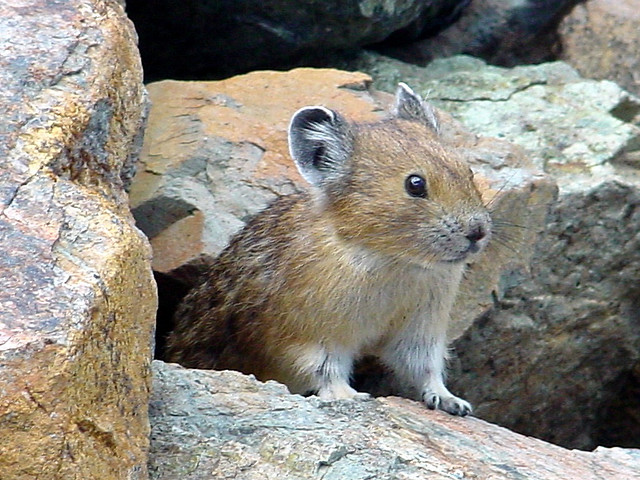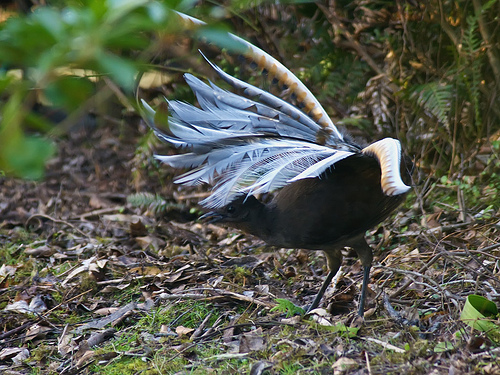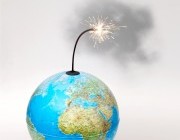habitat loss
-
We’ve killed off half the world’s wildlife in 40 years, and I’ve got something in my eye
It's not that half of all vertebrate species have gone extinct -- it's just the population counts that have dropped by 52 percent. Oh, phew.
-
Species are going extinct, but how quickly?
Species are going extinct at an alarming rate, and shrinking habitats are an important factor. Everyone agrees on that. But scientists don't agree about exactly how quickly species are disappearing and how they can craft mathematical models to predict that rate. A new study in Nature claims that the mathematical formula that the scientific community […]
-
Awesome bird records its own habitat destruction
Robert Krulwich has a post up about the superb lyrebird (real name!), which is COMPLETELY RIDIC. What's so superb? How about the ability to mimic any noise it hears with astonishing faithfulness, that do anything for you? It's the auditory equivalent of that girl from Heroes who could copy anything she saw on TV and […]
-
Future at risk on a hotter planet
We are altering the earth’s climate, setting in motion trends we do not always understand with consequences we cannot anticipate.
-
Year of the Tiger Brings in Fewer Tigers than Ever
According to the Chinese lunar calendar, February 14, Sunday, begins the Year of the Tiger. The largest of all cats, the tiger is one of the most charismatic and evocative species on earth. It’s also one of the most threatened. WWF estimates that there could be as few as 3,200 wild tigers left in the […]
-
Frogs in the forest: the new canaries in the coal mine
Dr. Kerry Kriger cracks a smile during his visit to Grist’s Seattle HQ.Russ Walker / GristOn Tuesday, the staff at Grist devoured frogs for lunch. Well, not exactly. We sat down with conservation biologist Dr. Kerry Kriger of the newly minted nonprofit Save the Frogs! — one of several stops he’s making in Seattle during […]
-
Looking at climate change from a regional perspective
"Climate change poses a tremendous threat to the Puget Sound and Georgia Basin area."
Clear. Concise. Depressing. The quote comes from Patty Glick, senior global warming specialist at the National Wildlife Federation, but it was echoed in the words of all the speakers at the three climate-change panels held Wednesday at the Puget Sound Georgia Basin Ecosystem Conference in Seattle.
Scientists of varying disciplines from all over the region shared their research and forecasts for the future. But one big question for the day arose: How do we take all of this climate change science -- which is primarily based on predictions that are global in scale -- and translate that into local management decisions?
-
Images of an evolving world by artist Don Simon
These images are from a series of drawings titled “Unnaturalism” by artist Don Simon. His work examines the impact of industrialization and sprawl on ecosystems. From his artist statement: “Throughout history, particularly since the beginning of the Industrial Revolution, mankind has been less than kind to our cohabitants on the planet. We build, produce, and […]
-
Images of oil addiction in Canada’s tar sands
Pop quiz: After Saudi Arabia, which country has the most proven oil reserves? Wrong. Not only wrong, but wrong part of the world. Unless you are among the .00001 percent who guessed Canada — in which case, congratulations! Canada has 179 billion barrels of proven “oil” reserves. I use quotes because it is not normal […]




